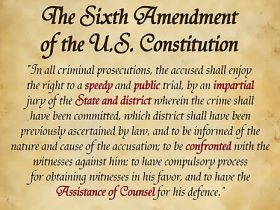Neal McCluskey
With Labor Day behind us, we are in full back-to-school swing. For the rest of the week, Cato Center for Educational Freedom scholars will be getting you up to speed on what’s happening in education policy as kids return to their assigned public elementary, pine-needle-cushioned forest school, hallowed Ivy League home, and more.
To start things off, an update on federal education policy.
There are two big things happening in federal education policy, and unfortunately, both depart from the major focus when Trump took office: eliminating the US Department of Education. The department has proven to be of little value in K‑12 education, incompetent in higher ed, and unconstitutional, no matter what. Ending it is absolutely the right goal. Unfortunately, the Trump administration seems more enamored of using federal power to impose its idea of “right” on schools than of ending federal meddling.
This was seen early on with heavy-handed attacks against Harvard University and other institutions of higher education for disfavored policies such as diversity, equity, and inclusion, or just ideological imbalance. These have largely been matters the feds have no clear authority to punish, especially without following established procedures, but the administration has acted anyway. To a significant effect: Just the threat of having funding withheld got institutions such as Brown, Columbia, and the University of Pennsylvania to change their ways. Look for this thrust to continue, especially if the big prize—Harvard—capitulates.
Increasingly, the Trump administration is waging a culture war with elementary and secondary schools. This includes the Department of Education requiring schools to jump through additional hoops to get federal money, five Northern Virginia school districts that refuse to change their gender-inclusive bathroom and locker room policies, and a Health and Human Services order to 40 states to remove “gender ideology” from their sex education standards. There is no sign that Trump plans to do anything other than ramp up these sorts of actions in the coming months.
Meanwhile, as I discuss here, there does not seem to be a lot of energy behind cutting the Department of Education. Maybe Trump actually wants to keep it, but just as likely, he sees the ball as now in Congress’s court. There, seven bills are aimed at ending the department, but so far, I have not detected a lot of energy to get one passed. Optimistically, that might be because the vehicle for the second big federal thing to watch—the One Big Beautiful Bill (OBBB)—was taking up all the oxygen from January to July. Now that it is law, Congress can move on to other matters.
The second major happening in Washington is that the OBBB includes a huge federal scholarship tax credit, which will give a maximum $1,700 credit to anyone who donates to a scholarship-granting organization (SGO) providing funds to students in families earning up to 300 percent of their county’s median income. Any taxpayer can donate, but states must decide if they want to participate by allowing the creation of SGOs. It is also an open question whether donations can only be used for private education, or a school district could get money to pay for, say, tutoring.
The program is scheduled to start on January 1, 2027. In the meantime, the Treasury Department must write implementing regulations. This is where we will start to see if school choice supporters who opposed this were right: Choice is good, but the feds providing it is bad, threatening to impose regulations on private education nationwide. Of course, the initial regs will only be a first test—laws and regs can be changed anytime, including after schools get reliant on the funding. Federal policymakers could eventually decide that schools that do not teach math “correctly” or that have insufficiently patriotic history curricula should be cut off.
The Constitution does not give Washington authority to use the tax code to create national school choice policies that it cannot create under the specific, enumerated powers. We have ignored that at our peril.
What else should you be monitoring this school year? Tomorrow, Collen Hroncich will get you up to speed on the drive for universal school choice, which has been advancing at the state level for years—exactly where it should be.













